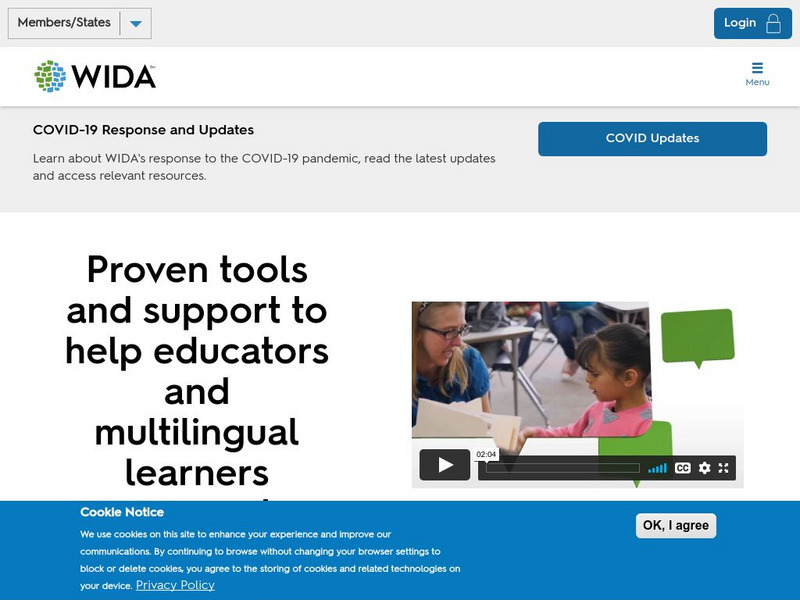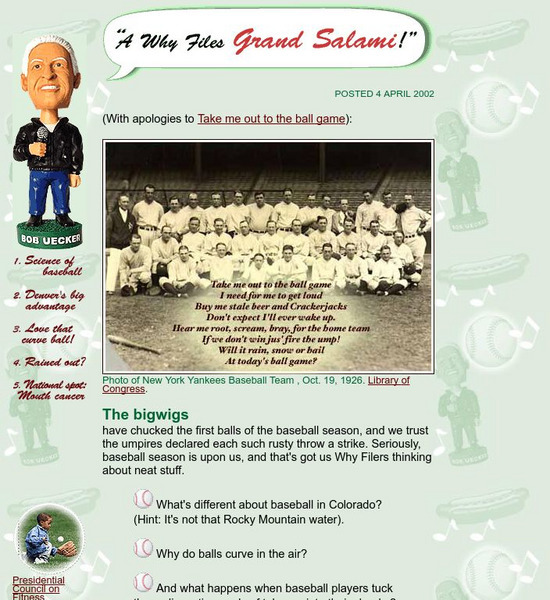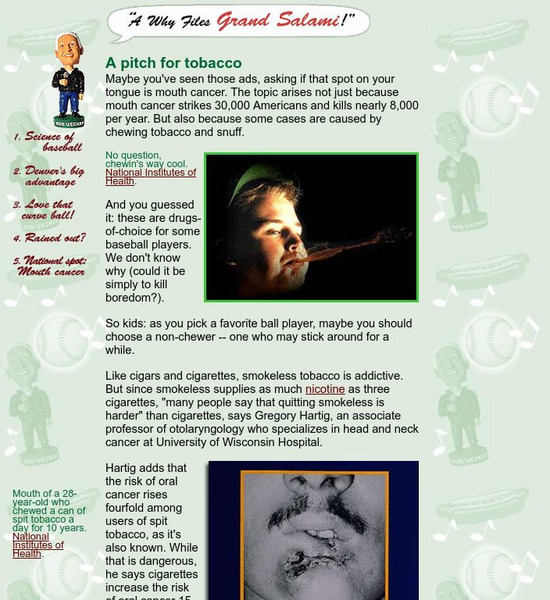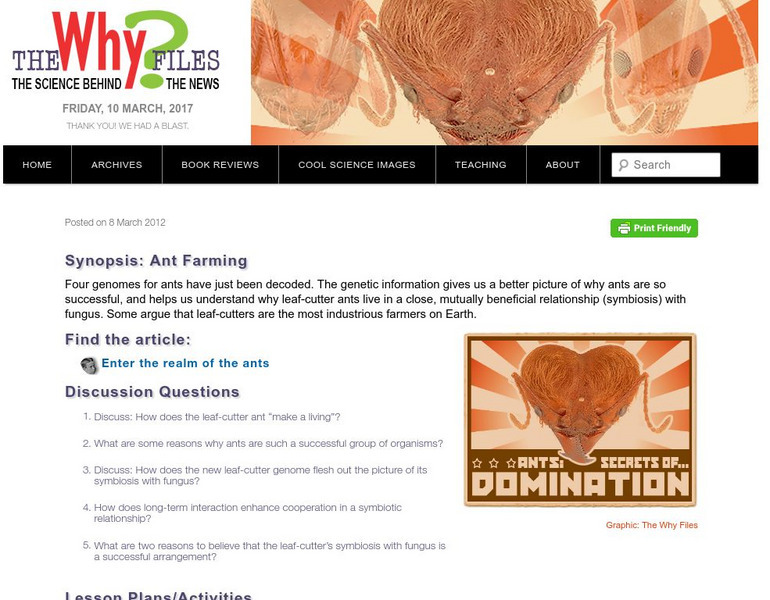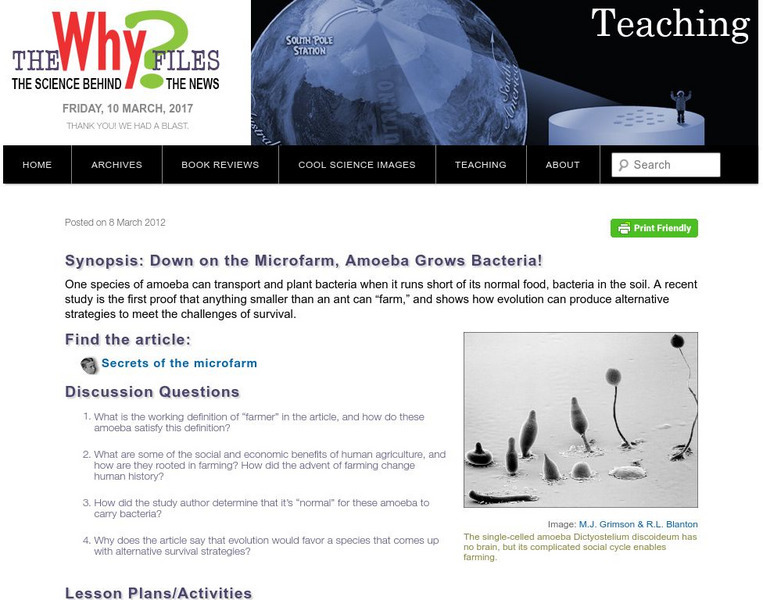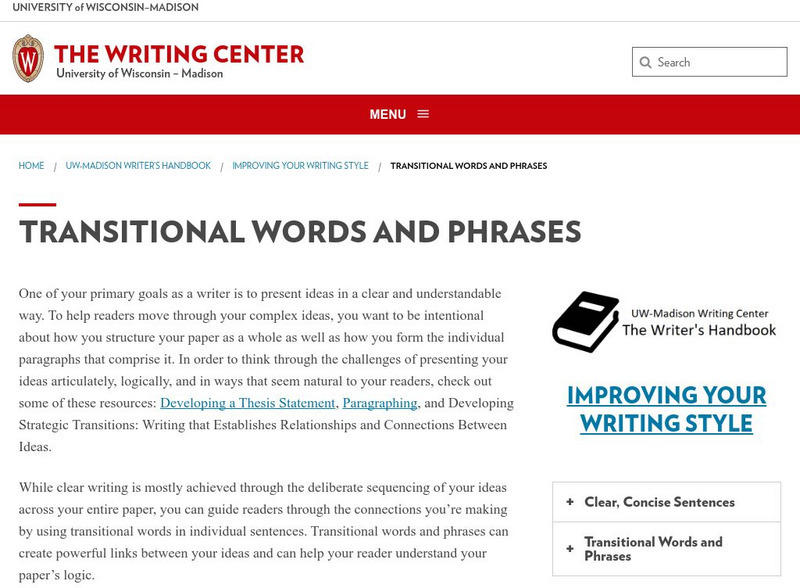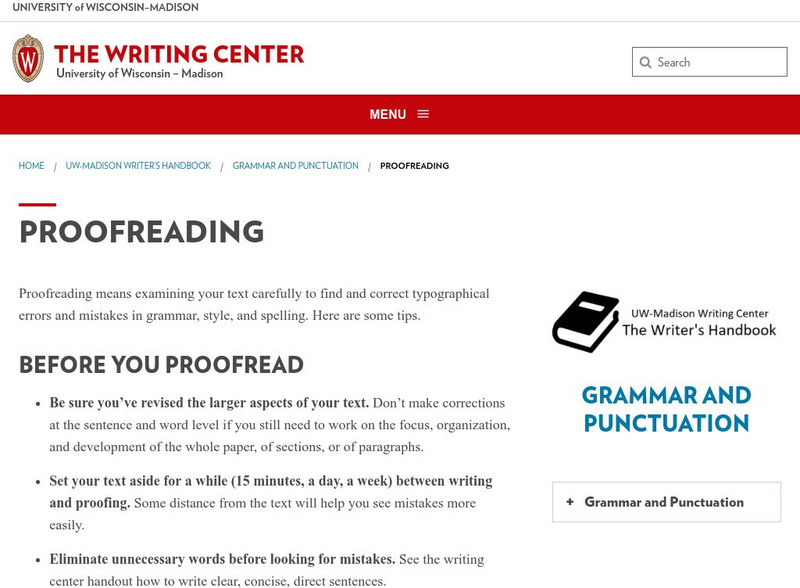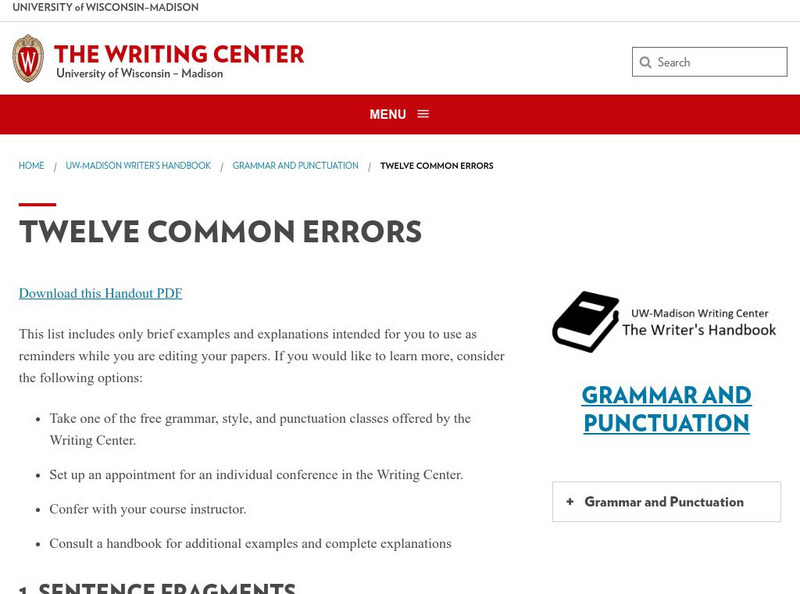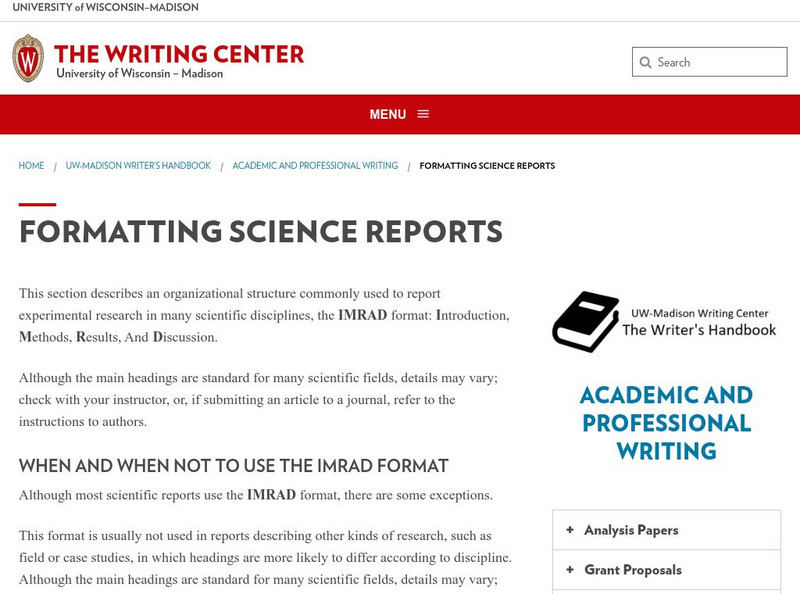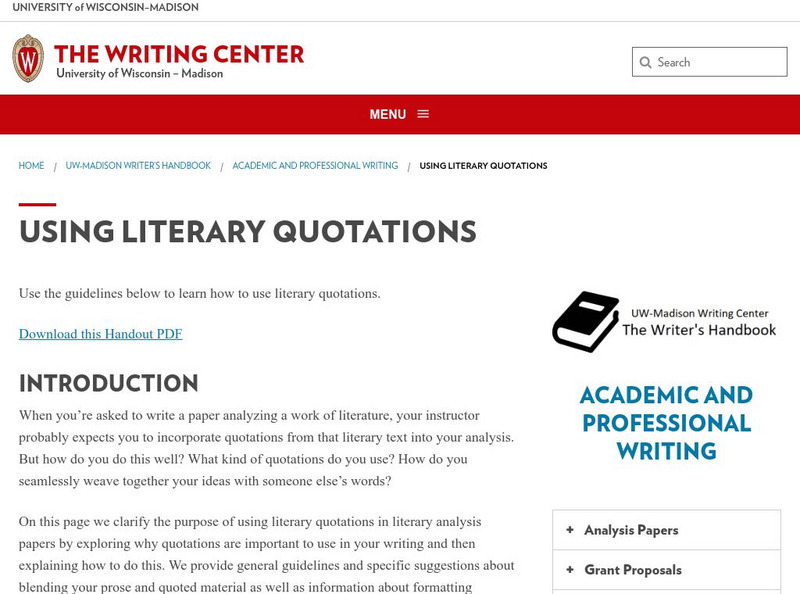University of Wisconsin
Wida (World Class Instructional Design and Assessment)
As the official site of the WIDA Consortium, this site offers detailed information around the WIDA standards and ACCESS for ELLs, WIDA's English language proficiency (ELP) assessment. The "Standards wizard" is highly recommended as it...
University of Wisconsin
Wida (World Class Instructional Design and Assessment)
As the official site of the WIDA Consortium, this site offers detailed information around the WIDA standards and ACCESS for ELLs, WIDA's English language proficiency (ELP) assessment. The "Standards wizard" is highly recommended as it...
University of Wisconsin
The Why Files: Science of Baseball
Ever wonder why a curve ball curves? Curious why Denver is the best place for homeruns to occur? Read on to learn about the science of baseball.
University of Wisconsin
The Why Files: Mouth Cancer
Discover the dangers of smokeless tobacco while reading this Why? Files article.
University of Wisconsin
The Why Files: Friction and Fly Balls
Try to find the sweet spot for hitting a baseball so that it travels the greatest horizontal distance.
University of Wisconsin
The Why Files: Down on the Microfarm
Explanation of how an amoeba can farm to make its own food when necessary.
University of Wisconsin
Japan: Consumer Co Op Movement in Japan (1995)
This site details Toyohiko Kagawa's relationship to the "Japanese consumer co-op movement." It is a good example of how his religious views influenced him into social activism by starting this organization.
University of Wisconsin
University of Wisconsin: Writing Center: Using Semicolons
A writing tutorial for the correct use of semicolons to link two independent clauses, clauses with commas, clauses connected by conjunctive adverbs or transitional phrases, and to link lists where the items contain commas. Examples and...
University of Wisconsin
University of Wisconsin Madison: Writing Center: Peer Reviews
Bulleted guidelines for conducting a peer review on a draft. Emphasizes knowing the intent of the writer, controlling the content of the review, and maintaining a polite, helpful tone.
University of Wisconsin
University of Wisconsin: Using Transitions: Transitional Words and Phrases
Tables of words that show different types of sentence transitions. W.9-10.1c cohesion/clarity/reason, W.9-10.2c cohesion/clarity/transitions. CCSS.ELA-Literacy.CCRA.W.4, W.11-12.1c Transitions/Cohesion, W.11-12.2c Transition/Cohesion....
University of Wisconsin
University of Wisconsin: Writing Center: Quoting and Paraphrasing
This provides guidelines for creating a paraphrase, sample paraphrases, introducing quotations, punctuating, formatting quotations, and what must be documented.
University of Wisconsin
University of Wisconsin: Writing Center: How to Proofread
Concise instruction on how to get the best results from your proofreading. Suggestions are divided into "Before You Proofread," "When You Proofread," and "When You Want to Learn More." The latter includes links to handouts on writing.
University of Wisconsin
University of Wisconsin Madison: Writing Center: Editing Checklist
This twelve-item checklist is linked to short explanations that include an example of the error, followed by revisions. W.9-10.5 Writing Process
University of Wisconsin
University of Wisconsin Madison: Writing Center: Using Commas
This tutorial shows how to punctuate nonrestrictive and restrictive modifiers. Definitions and sample pairs of sentences are included.
University of Wisconsin
University of Wisconsin: Writing Center: Mla Documentation
This site outlines the basics of the MLA (Modern Language Association) style of documentation and includes links to handouts about in-text citations, the works cited page, and how to cite electronic sources. Several sample citations and...
University of Wisconsin
University of Wisconsin: Writing Center: Apa Documentation
This site provides information on the APA (American Psychological Association) documentation style. The information can be downloaded in PDF format. It refers to several handouts dealing with parenthetical references, reference lists,...
University of Wisconsin
Univ. Of Wisconsin Madison: Writing Center: Thesis and Purpose Statements
Explains the thesis statement and distinguishes it from the purpose statement. Gives an example of a paragraph containing both. Be sure try the link at the bottom of the page, "Developing a Thesis Statement." This page goes into further...
University of Wisconsin
University of Wisconsin: Writing Center: Formatting Science Reports
This site outlines the necessary elements of a scientific report. The site is broken down into the follow segments: title, abstract, introduction, methods, results, and discussion. Within each section is a contents section as well as a...
University of Wisconsin
University of Wisconsin, Madison: Subject Verb Agreement
This excellent site explains numerous guidelines, complete with examples, for determining subject-verb agreement.
University of Wisconsin
Scien Count Ers: Earthquake Proof Buildings
This instructional activity looks at how the forces of an earthquake impact on buildings, and different ways to make buildings earthquake-proof. Includes student worksheet and tectonic plates map.
University of Wisconsin
The Why Files: Sleepytime
Sleep is an important body function. Read on to discover how sleep can prevent your brain from crashing and promote learning.
University of Wisconsin
The Why Files: Old Eyes = Blind Eyes?
The Why? Files have provided information about a troubling disease causing blindness. Characteristics of AMD and treatment options are explored.
University of Wisconsin
University of Wisconsin Madison: Writing Center: Using Literary Quotations
Explains the style rules regarding using literary quotations in your essay. Covers punctuation, documentation, and the purpose of quoting. The information can be downloaded in PDF format.



